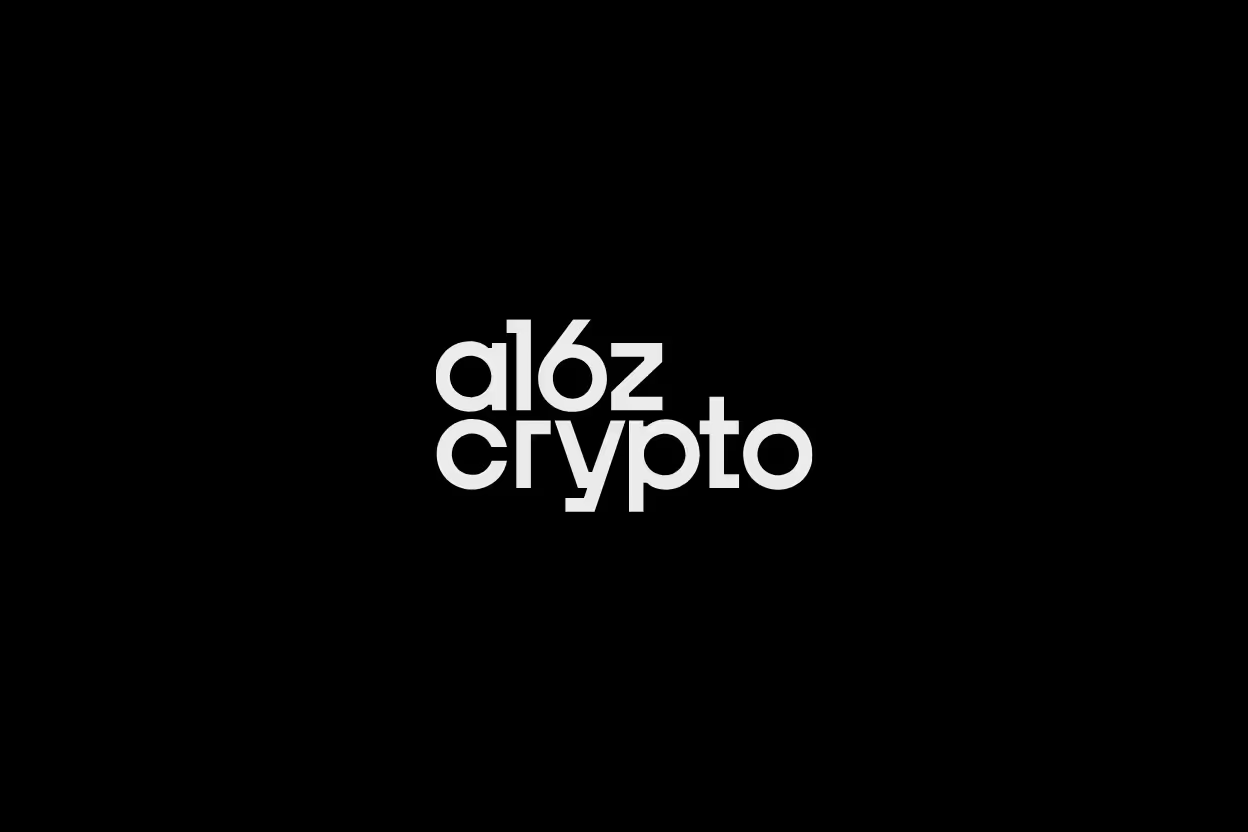AI creators face a pressing shortage of quality training data. Traditional web sources have been picked clean, leaving AI teams scrambling for new material that isn’t blocked by copyright or low on value. This rising scarcity has exposed both legal risks and big gaps in what’s available to fuel the next wave of AI models, especially those needing real-world, multi-sensory information.
Blockchain-backed decentralization now offers a real way forward, giving creators tools to share, license and profit from valuable data with full traceability. Poseidon, seeded with $15 million from a16z, stands out as a bold answer—turning intellectual property into programmable, tradeable assets that AI developers can access legally and transparently. As questions over data rights and reliable access mount, could a decentralized layer like Poseidon finally connect data owners, innovators, and investors in a new, enforceable marketplace? This is where Web3 may start to reshape how the AI sector sources and values the data it truly needs.
The Limits of Traditional AI Training Data
AI is only as strong as the data that fuels it. Yet, as teams hunt for the next breakthrough in generative AI or robotics, the cracks in old methods are widening. The best and easiest web data has already been picked over. Now, anyone building next-gen AI has to work around copyright roadblocks, patchy quality, rising costs, and a growing trust gap over how data is sourced and shared. Many founders and builders wonder, how do we keep models accurate, fair, and robust as these limits tighten?
Data Scarcity and Overuse
Most traditional AI models rely on massive, labeled datasets scraped from public sources, open repositories, and copyrighted works. The problem? These sources are drying up.
- Web data access is shrinking. Lawsuits, copyright rules, and paywalls restrict what can be used legally.
- Datasets are often outdated. Data collected years ago doesn’t reflect new trends or realities, especially in areas like health or news.
- Lack of diversity. If everyone uses the same few datasets, models become repetitive and blind to edge cases.
Have you found your project hitting these same walls?
Expensive, Biased, and Hard to Scale
Building large, high-quality datasets from scratch is slow and costly. High-stakes fields—like finance, medicine, or robotics—need special data you can't easily download. Here’s what gets in the way:
- Annotation bottlenecks: Labeled data takes time, expertise, and money. Mistakes or limited perspectives in labeling can lead to bias.
- Bias baked in: Training on unbalanced or non-representative data means the AI will reflect those same flaws. Many teams struggle to correct these errors after deployment.
- Scaling up isn’t simple: Each new domain demands unique data. Collecting and cleaning it for every project is neither fast nor cheap.
Do you trust the data behind your models, or are you gambling with hidden risks?
Limited Adaptability and Generalization
Traditional models work best on the types of data they were fed. When faced with something new, performance drops quickly.
- Poor generalization: Shifting trends, new slang, or changing environments can confuse static models.
- Overfitting dangers: When models learn patterns too precisely, they struggle to handle real-world variety.
Users want AI that can adapt like a human—but traditional data pipelines leave models stuck in yesterday’s world.
Governance, Privacy, and Legal Risks
Who owns the data your AI uses? Can you trace its origins? Old-school methods rarely offer clear answers.
- Traceability gaps: Once data is processed, tracking its source is close to impossible.
- Consent and privacy: With blurred data lines, it’s easy to breach privacy or intellectual property rights by accident.
- Legal headaches: New lawsuits and changing rules keep teams guessing—and expose them to costly risks.
Is your data pipeline safe from sudden takedowns or IP claims?
Environmental and Operational Costs
Training large models on huge sets chews through energy and resources. The bigger the data, the heavier the environmental footprint.
- Resource drain: High-performance hardware, long training times, and repeat runs all drive up costs.
- Sustainability worries: As training needs soar, so do the demands on power grids and the planet.
If everyone has to scale up hardware just to keep pace, who really wins?
The Need for a New Approach
All these constraints have many asking: What would it take to build AI on fresher, richer, and more ethical data? How can founders and investors back projects that don’t just scrape, but share real value with data creators—and future-proof their businesses? The answer likely isn’t more of the same. It’s time to look for ways to rethink the data layer itself.
Poseidon’s Vision: A Decentralized Data Layer for AI
The next generation of AI demands more than just more data—it needs better, richer, and more diverse data that captures the complexity of the real world. Poseidon is building the foundation for this shift, offering a decentralized infrastructure designed to fairly reward data creators, crack open IP bottlenecks, and allow AI teams to legally and transparently access high-quality resources that traditional pipelines can’t provide. This approach has caught the attention of both investors and early adopters looking to solve urgent data problems for robotics, autonomous systems, and beyond.
What Types of Data Does Poseidon Target?
Poseidon zeroes in on the hardest-to-get, most valuable datasets in the AI field: physical-world, multi-modal, and highly specific data streams. It’s not just about scraping text or images from websites any longer. Poseidon’s network focuses on:
- Sensor and telemetry data from robotics
- Environmental recordings for spatial computing
- Edge-case interactions in autonomous vehicles
- Audio, video, and spatial data from real-world environments
Why does this matter for AI’s next leap? Because advanced models can only perform as well as the real-world scenarios they’re exposed to. Synthetic or web-sourced data often misses edge cases—those weird, unexpected events that matter most in fields like self-driving cars or voice assistants. Many teams face the same question: If everyone uses the same stale datasets, how will we ever reach true adaptability?
By prioritizing decentralized sourcing and quality validation, Poseidon helps ensure AI models are trained on unique, up-to-date, and lawful datasets. This approach could reshape how robotics firms, sensor providers, and digital creators monetize their data and participate in global AI progress.
How Does Poseidon Handle Licensing and Compensation?
Poseidon's infrastructure is built from the ground up to respect intellectual property and offer creators fair, transparent monetization options. Here’s how it works:
- Automated Smart Contracts: Poseidon uses blockchain-based smart contracts to handle licensing terms and usage rights. Contributors don’t have to worry if their data will be credited or how payments will work—everything is preprogrammed and enforced on-chain.
- On-Chain IP Management: Every data asset gets tracked and attributed from the moment it’s shared. Licensing rules are programmable, which means creators can decide who uses their content, in what way, and for how long.
- Royalty Enforcement: The system automatically distributes royalties. Data creators, annotators, and even those who fine-tune or augment datasets receive their share whenever their data is accessed or licensed by AI builders.
- Stablecoin Payments: To simplify global participation and avoid payment friction, Poseidon relies on stablecoins like USDC. Creators get paid instantly, in a currency that holds value and is easy to convert.
With these tools, Poseidon lets high-quality data flow from owners to AI innovators without the risk of IP theft or missed compensation. This builds confidence on both sides: creators are finally paid for the work AI relies on, and AI teams don’t have to gamble on gray-area or outdated datasets.
Are you trying to monetize your unique datasets? Are you worried about unauthorized use or missing out on royalties? Poseidon aims to solve these headaches by bringing legal compliance, automation, and global payments under one user-friendly platform. For founders and investors in crypto, blockchain, and Web3 alike, this model sets a strong precedent for how decentralized tech can tackle real AI challenges.
Why Decentralization Matters for Data Supply Chains
AI has outgrown traditional, centralized data pipelines. As models race ahead in capability, the question is not just how to find enough data, but how to make sure that data is accurate, diverse, and sourced in a way everyone can trust. Decentralization isn’t just a trend—it’s the underpinning that can make data supply chains resilient, transparent, and fair. It opens up data contribution to the world, gives creators control over their work, and embeds accountability at every step. But how does this actually work in practice? Two key areas reveal the difference: who can contribute data and keep control, and how every data packet is kept traceable and trustworthy by design.
Who Gets to Contribute, and How?
Decentralized data frameworks like Poseidon break down the old barriers of centralized tech platforms. They give anyone—be it a solo creator, a research lab, or a major enterprise—a way to connect and monetize valuable data while maintaining control and privacy.
With the development of contributor modules, SDKs (software development kits), and advanced data ingestion pipelines, the rules of who can join and profit from AI's growth have shifted. Here’s how it plays out:
- Contributor Modules: These modules plug individuals and teams directly into the data supply chain without requiring them to give up ownership or control. Want to supply real-world audio files, unique environmental data, or proprietary code snippets? Contributor modules allow you to specify licensing, set access levels, and even automate royalty distribution.
- SDKs and APIs: Rather than relying on hard-to-integrate systems, SDKs provide ready-made toolsets so developers, businesses, and even hobbyists can on-ramp their data into the ecosystem fast. Data suppliers can define usage limits and terms via simple interfaces.
- Data Ingestion Pipelines: Institutions with massive data lakes, or individuals with smaller but novel datasets, can tap into streamlined ingestion tools. These pipelines clean, validate, and onboard data in ways that retain metadata, ownership, and consent info.
All of this means a robotics startup in Tokyo, a university in Berlin, or a solo artist in São Paulo can monetize their unique contributions. Creators don’t have to trust a central authority with their work. Instead, they set monetization rules via smart contracts, track usage, and get paid automatically. Ask yourself, “Would you contribute your data if you didn’t know where it would go or if you’d ever get paid?” Poseidon’s approach gives every stakeholder a clear path to compensation and control. It removes much of the guesswork—and hidden risk—around data sharing.
What Makes Data Traceable and Trustworthy?
AI runs on trust. If you’re building a life-saving medical algorithm or an autonomous vehicle, can you guarantee the data you’re training on is legitimate and high-quality? This is where decentralization, built on blockchain, shines.
Blockchain-Provenance and Metadata Standards:
- Every piece of data entering Poseidon’s network is registered with a tamper-proof blockchain record. This record logs when, by whom, and under what license the data was contributed.
- Metadata standards set by the network capture not just what the data is, but how it was collected, its original context, and any modifications over time.
- Because blockchain ledgers are distributed and immutable, no single actor can rewrite history or erase usage trails.
Automated Quality Assurance:
- Smart contracts enforce validation steps: automatic checks for quality, completeness, and compliance before data even joins the network.
- Algorithms, and sometimes community voting, evaluate submissions and flag anomalies or attempted fraud.
Want to know if your dataset is still in its original form or if it’s been altered? Through blockchain’s public ledger, every change and usage event is logged. Stakeholders can audit, trace, and even recall datasets if quality or IP issues come up.
Reader questions to consider:
- Can you trace every step your AI training data took before reaching your model?
- How do you prove data quality to regulators, partners, or investors?
- What would it cost your business if your models trained on fraudulent or low-quality data?
This traceability doesn’t just raise confidence. It streamlines compliance, builds trust with buyers, and makes it easier to prove the provenance and value of every contribution. For founders and VCs, this builds a foundation that’s both resilient and legal. In a world moving fast, can you afford data you can’t trust? Decentralization, especially through platforms like Poseidon, is quickly shifting the answer.
A New Economic Model for Internet Data
The economics of internet data are shifting. Poseidon, with strong backing and an IP-centered approach, aims to redefine how value flows between data creators, suppliers, and AI consumers. Instead of data moving invisibly through centralized pipes, contributors have a direct stake in how, when, and by whom their data is used. The rise of decentralized data layers is giving birth to a transparent and fair marketplace—something previous models struggled to deliver. As more founders and investors look to safeguard quality and boost access, economic incentives are now aligned for the first time. This represents a turning point for how the internet rewards originality and enables scalable AI progress.
What Problems Does This Solve for the AI Ecosystem?
Decentralized data layers aren't just a technical upgrade. They address real weaknesses in today's AI data pipeline:
- IP Safety and Provenance: With blockchain-backed recordkeeping, every dataset's origin and ownership are tracked by design. This stops unauthorized use of copyrighted works and lowers the risk of expensive legal challenges.
- Legal Compliance: Automated smart contracts handle licensing terms and royalty splits. Contributors pick how their data can be used. This answers mounting regulatory demands and protects both creators and AI teams from unpaid claims.
- Rewarding Contributors: This new model lets data publishers profit fairly. Whenever their contributions power AI training, they receive payments automatically—no more waiting for credit or chasing uncertain royalties.
- Privacy Control: Data suppliers can share only what they choose, using rules that protect privacy and manage risk. No one has to give up complete control.
- Scaling AI Development: Fresh, diverse, and rare data can enter the ecosystem from anywhere in the world. That opens the doors for edge cases—physical-world recordings, odd scenarios, or specialized content often missing from public corpora.
Decentralization is not just a technical shift; it's also a cultural one. Real transparency and monetization help build trust, drawing new suppliers and high-quality content that would otherwise stay locked away.
Contributors and investors might wonder: Will real financial incentives finally motivate people to share the rare, messy, or complex data AI confronts in the wild? Can robotics companies or researchers in small labs monetize their unique worldviews—scenarios that centralized systems ignored or couldn't value? This model encourages exactly that, aiming to fill in critical gaps across fast-changing AI fields.
Reader questions to consider:
- Are you missing out on the chance to get paid for your unique datasets?
- How much stronger could your AI models be if you could tap into a global, permissioned data stream?
- Would you feel safer contributing your data if every use was tracked and monetized instantly?
As the internet matures, decentralizing the data layer stands out as both a natural evolution and a much-needed answer to today’s biggest AI growth challenges. With models like Poseidon’s, the ecosystem becomes a true marketplace—one where IP holders, rare data creators, and next-gen AI teams all find new opportunities and better protection.
Will Poseidon Become the Data Backbone for AI?
Poseidon was built with one goal: to reshape how AI finds, uses, and rewards data at every stage of development. Backed by a16z Crypto with $15 million in seed funding, its mission is bold. It wants to form the economic and technical backbone for tomorrow’s AI systems by creating a programmable, decentralized layer where creators, suppliers, and AI builders connect over trusted data exchange. With debates over copyright, data ownership, and value sharing heating up, all eyes are on whether Poseidon has the vision and system-wide incentives to actually win the market.
Let’s look at key reasons why Poseidon stands out—and the shifts it could bring.
A Full-Stack Approach to Data Infrastructure
Most current solutions focus on marketplace features or licensing widgets for web data. Poseidon aims higher. It positions itself as a complete infrastructure layer. This means handling:
- Data access: Routing requests between AI teams and global data contributors, not just scraping the web.
- Provenance and traceability: Recording every data transaction, license, and usage event on-chain for instant audit trails.
- Smart contract-driven licensing: Turning every agreement, royalty payout, and access rule into code—making it programmable, not political.
- Privacy by default: Letting data suppliers control what, when, and with whom information gets shared.
Are you struggling to prove where your training data came from, or how it can be safely used? Poseidon aims to remove that uncertainty. Its full-stack design promises better compliance, security, and transparency.
Satisfying AI’s Growing Appetite for Unique Data
AI innovation now depends on finding specialized, real-world datasets that typical brokers can’t supply. Edge-case sensor data, rare environmental recordings, and unique human experiences are the missing nutrients in the AI diet. Poseidon’s decentralized sourcing means it can:
- Bring in data from robotics teams, specialists, and creators who were invisible to previous platforms.
- Incentivize the release of “long-tail” datasets—those niche collections that never made it to public marketplaces.
- Track every dataset’s value and usage, making even small contributions valuable if they solve hard AI problems.
Can your rare or localized data actually reach AI labs that need it most? With Poseidon’s coordinated system, small data owners get global reach and ongoing rewards.
Aligning Incentives Through Blockchain and Smart Contracts
Much of the conflict in AI training today comes from cycles of extraction and lawsuit—data scraped first and permission asked later, if at all. Poseidon flips this model with enforced, automatic compensation via blockchain contracts:
- Data creators set licensing terms directly.
- Every access triggers instant payment—no more waiting, no missed royalties.
- Transparent records reduce disputes and unlock more open participation.
The model works like a high-trust vending machine for data. Every stakeholder receives what they’re owed, when and how they expect.
Wondering if smart contracts can finally break the deadlock over AI copyright? The system Poseidon proposes means no more guesswork—every transaction is clear, programmable, and enforced.
Addressing Legal and Ethical Pressures Head-On
As regulation catches up to AI, legal threats over data use only get sharper. Poseidon directly addresses these risks:
- All data sharing is explicit and auditable, helping AI teams steer clear of copyright violations.
- Contributors can assign different rights per region, usage type, or project.
- The transparent trail of custody means teams are ready for audits and can prove ethical sourcing to anyone who asks.
If your project is aiming for global scale, or needs to reassure regulators and big partners, Poseidon’s legal clarity could be a deciding factor.
Investor and Industry Confidence
Major investors, including a16z Crypto, are betting on Poseidon's approach to become standard. Targeting real-world datasets and automating value flow marks a sharp difference from old data marketplaces. Poseidon was incubated by the Story protocol, itself an IP licensing innovator, giving it credibility in both crypto and AI circles.
Questions for founders and investors:
- Would you trust your critical product roadmaps to a data layer with less clarity or weaker incentives?
- Can you afford to keep patching together disconnected tools as the market accelerates?
- How much value is your portfolio missing by leaving contributor incentives out of the picture?
Poseidon presents a coordinated, programmable future for AI data. While adoption and competition will shape the landscape, its roots as an owner-focused, blockchain-powered layer give it a real shot at owning the data backbone—one that rewards everyone, not just the biggest players.
Conclusion
The future of advanced AI depends on a data layer that is open, traceable, and built on fair compensation. Centralized pipelines can't deliver the quality, diversity, or assurance that next-generation AI needs—especially for robotics, real-world environments, and edge-case scenarios. Poseidon stands out by connecting data creators, IP holders, and AI builders through a decentralized platform where every transaction is tracked and every use is rewarded automatically.
VC backing and industry interest show both urgency and confidence in a new model for sourcing and rewarding data. This raises important questions for founders and investors: What new markets and supply chains could emerge if rare data becomes accessible worldwide? How can transparent licensing reshape trust between contributors and developers? What open problems still exist for onboarding, moderation, or niche data collection in this ecosystem?
The shift to decentralized data is not a trend but a necessary step if AI is to move beyond today's limits. Now is the time to explore what types of unique data you could contribute or unlock, and which tools or standards will set the rules for tomorrow’s data economies. If you have insights on what’s missing—or see ways to extend these systems—jump in and help shape the next era. Thank you for reading. Share your thoughts or questions below to keep the conversation moving forward.






